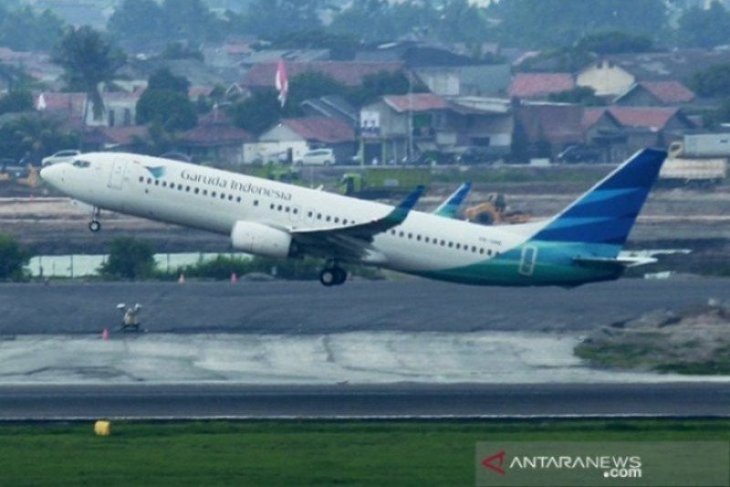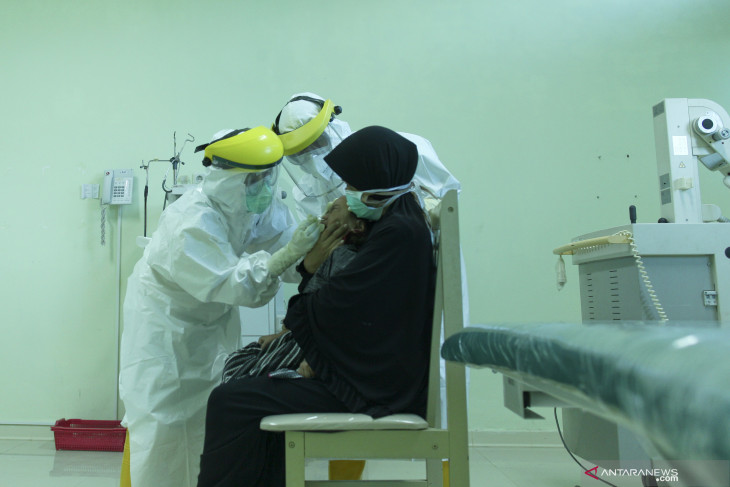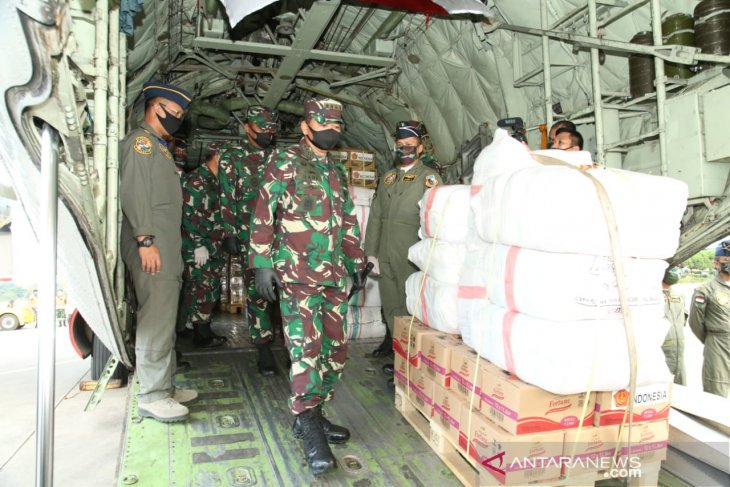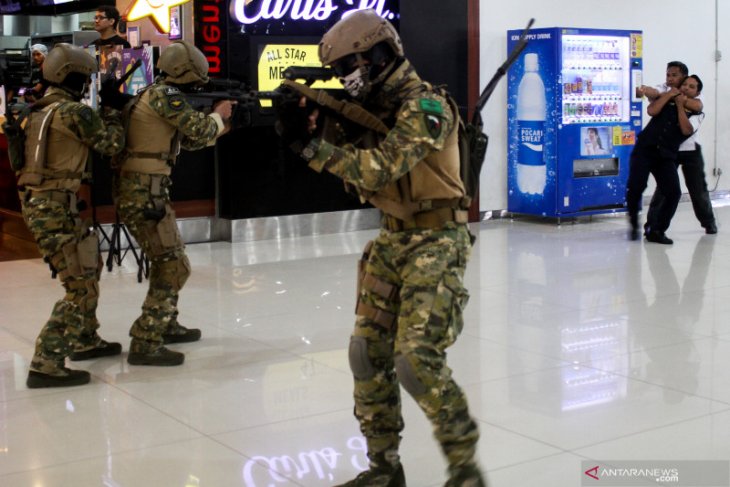Live Streaming
Program Highlight
Company Profile
May
Government Plans Tourism Stimulus in Third Quarter of 2020
Written by Ani Hasanah
Head of Fiscal Policy Agency (BKF) of the Ministry of Finance, Febrio Nathan Kacaribu, said the government plans to roll out a stimulus for the tourism sector in the third quarter of 2020.
The stimulus would be announced if there is an economic movement, he added.
"In the third quarter, we cannot wait to walk because we are bored at home, so we will prepare a stimulus for tourism, restaurants, transportation (sectors),” he said during an online discussion on Wednesday in Jakarta.
Febrio said the previous stimulus package was issued to expand consumption among the upper-middle class and comprised discounted airplane tickets to tourist destinations and hotel or restaurant tax incentives.
"That was done to encourage consumption. Consumption in the first quarter of 2020 has been depressed," Febrio noted.
Febrio said a depressed tourism sector on account of the COVID-19 pandemic also contributed to the growth in consumption in the first quarter of 2020, pegged at just 2.8 percent, and expected to fall further in the second quarter of 2020.
"The toughest economy (was seen) in the second quarter, (when) among other things, tourism stopped, trade fell sharply, and manufacturing was disrupted, so we have to get ready. We hope that the consumption stimulus will start for the middle class, namely, (for) tourism, restaurants, and transportation,” he explained.
He further stated that the planned stimulus for tourism is expected to increase consumption among the layers of society in the middle class.
The government has allocated social assistance for the economically weaker classes of the society, he said.
“The government is considering how to expand consumption stimulus among the middle class, “ he added.
The government's planned stimulus for tourism is also part of an effort to reduce the pressure on Indonesia's economic growth, Febrio continued.
“We hope Indonesia's economic growth is not depressed deeper than 2.97 percent in the first quarter of 2020,” he said.
Meanwhile, according to data provided by the Central Java Statistics Office (BPS), the number of foreign tourists visiting Central Java Province in March 2020 fell by 46.37 percent compared to the previous month.
Just 945 foreign tourists visited Central Java in the month of March this year compared to 1,762 the previous month, Central Java BPS head Sentot Bangun Widoyono remarked earlier.
The data was recorded on the basis of foreign tourist arrivals through the province's main airports: the Ahmad Yani Airport in Semarang and the Adi Soemarmo Airport in Solo.
"This is the impact of the COVID-19 outbreak. A travel ban has been in place since February this year, thereby limiting mobility," he remarked.
Widoyono said most of the foreign tourists were Malaysian citizens.
"The number of visitors from China has declined sharply," he informed.
The decline in visitors impacted the tourism sector, in general, as the occupancy rates at star-rated hotels also dropped in Central Java.
Widoyono said the average hotel occupancy rate in Central Java in March this year plummeted to 28.63 percent from 46.36 percent the previous month. (ANTARA)
May
BPJS Kesehatan Warns Hospitals Over not Charging for Rapid Tests
Written by Ani Hasanah
Arsip Foto. Two medical workers examined a patient's health condition. ANTARA FOTO
The Health Care and Social Security Agency (BPJS Kesehatan) warned its partnering hospitals to not charge the agency’s clients for rapid tests and not make them a pre-requisite to receive their COVID-19-related medical services.
"The rapid tests must not be made a requirement for BPJS Kesehatan clients to receive medical treatment," BPJS Kesehatan spokesman M. Iqbal Anas Ma'ruf noted in a press statement made available to ANTARA in Jakarta on Tuesday.
The agency has sent letters of warning to all its partnering health centers and hospitals to not violate their agreement, he remarked, adding that any client of BPJS Kesehatan can report unlawful acts of the agency's partners to officials of BPJS Satu.
"They can contact the BPJS Satu officials at hospitals. Their contact numbers are available at the hospitals. They may also report unlawful acts to the BPJS Kesehatan Care Center at 1500-400 or its official social media account," he stated.
Coordinating Human Development and Culture Minister Muhadjir Effendy had announced on March 24 that the hospitalization costs borne by COVID-19 patients will be covered by the country's national health insurance provider, BPJS Kesehatan.
The coronavirus outbreak initially struck the Chinese city of Wuhan at the end of 2019, but it then spread to various parts of the world, including countries in the Asia-Pacific region.
The Indonesian government officially announced the country's first confirmed cases on March 2.
Since then, the central and regional governments nationwide have striven persistently to flatten the curve by imposing healthcare protocols and social restrictions.
As of Monday (May 11), the total number of patients recovering from the infection stood at 2,881, while the tally for confirmed COVID-19 cases reached 14,265 nationwide, with 373 cities and districts reporting coronavirus cases.
The number of patients succumbing to the disease rose by 18 to reach 991, according to the Indonesian Government's COVID-19 Task Force.
The health authorities tested 116,358 people using polymerase chain reaction (PCR) and rapid test methods, with at least 102,093 people testing negative for COVID-19.
In breaking the chain of this novel coronavirus disease that has impacted the purchasing power of numerous families in Indonesia, large-scale social restrictions are also applied in several other cities, including Jakarta, Bogor, Depok, Tangerang, and Bekasi.
The central government has also banned homebound travel, or locally known as "mudik," during the fasting month of Ramadhan and Idul Fitri holiday seasons. (ANTARA)
May
Cyclone Harold: Indonesia to Send 12.9 Tons Aid to Fiji
Written by Ani Hasanah Indonesian military commander Marshal TNI Hadi Tjahjanto (middle) inspects a consignment of humanitarian aid prior to its deployment to Fiji. (ANTARA/HO-TNI Public Relations)
Indonesian military commander Marshal TNI Hadi Tjahjanto (middle) inspects a consignment of humanitarian aid prior to its deployment to Fiji. (ANTARA/HO-TNI Public Relations)
The Indonesian Military (TNI) headquarter will dispatch 12.9 tons of humanitarian aid to Fiji to help communities affected by cyclone Harold, which made landfall last month in the South Pacific country.
TNI will deploy a Hercules aircraft belonging to the national air force for transporting the aid to Suva, the capital of Fiji.
The aircraft will leave early tomorrow morning (May 13, 2020) from the Halim Perdanakumuna airport and is expected to land in Fiji at 10 p.m. local time on Thursday. The flight route will be Jakarta-Makassar-Merauke-New Caledonia-Suva.
"The 12.9 tons of humanitarian aid comprising basic necessities for the people of Fiji is from the government and all Indonesians," said military commander Marshal TNI Hadi Tjahjanto in a statement, after an aid deployment ceremony on Tuesday in Jakarta.
The aid, which comprises food and beverages, as well as items such as tents, towels, and blankets, is part of the support pledged by the Indonesian Embassy in Suva on an earlier instance.
"Indonesia's current situation and the hardships (faced) during the COVID-19 pandemic have not reduced our humanitarian spirit to provide support to the people of Fiji, who may have experienced worse things," Tjahjanto added.
Cyclone Harold battered Fiji on April 8 this year, as well as other island nations in the region such as Vanuatu and Solomon Island. It destroyed several buildings and injured people in the capital, Suva.
The cyclone, whose strength ranked in the highest category among five other cyclones, with wind speed reaching 200 kilometers per hour, has worsened the situation in Fiji since the pandemic hit the island nation. (ANTARA)
May
TNI's Involvement in Fighting Terrorism will Have Deterrent Effect
Written by Ani Hasanah
A counterterrorism drill was conducted by several Indonesian navy personnel at East Java's Juanda International Airport Terminal 2 last year. ANTARA FOTO/Umarul Faruq
The Indonesian presidential regulation on engaging the Indonesian Military (TNI) in countering terrorism will deter any terrorist group in the country from continuing its movements, a University of Indonesia's (UI's) terrorism expert stated.
"The draft of the presidential regulation as a follow up to Law Number 5 of 2018 on Countering Terrorism will deter terrorist groups. If the TNI gets involved, there will likely be a shock factor and fear," Ridlwan Habib told journalists in Jakarta, Tuesday.
The presidential regulation, to shortly be issued by President Joko Widodo, encompasses comprehensive information on the TNI's involvement in cracking down on terrorism since the nascent stages of preventing to countering and recovering, he remarked.
Habib opined that involving the TNI in measures to fight terrorism was the pertinent decision since its intelligence capabilities would help to effectively prevent the occurrence of terror acts.
The TNI has had capable intelligence units, right from headquarters to territorial units. Consequently, its intelligence data can be applied to deter the terrorist groups from conducting their planned acts of terror, he remarked.
"The fear and shock among members of a radical group over TNI’s involvement in counterterrorism measures can be traced back to several groups of social media platforms. This radical group is apprehensive about the outreach of the TNI networks up to villages," he pointed out.
Referring to the draft of the presidential regulation, its Article 9, for instance, highlights several terror acts that the TNI can counter, including assaults targeting the president and vice president, Indonesia's vital objects, and highly-scaled acts of terror.
"The TNI has the 81 Special Detachment (Gultor) of the Army's Special Force (Kopassus) and also the special operation command at the TNI headquarters that can be dispatched at any time," Habib noted.
The presidential regulation does not violate the norms of Indonesia's legal system as stipulated in Article 10 that mentions individuals caught by the TNI units would soon be handed over to the Indonesian police for further legal proceedings.
Habib also put to rest concerns rising of the presidential regulation paving the way for human rights violations since the TNI personnel had actually joined counterterrorism missions along with the police, akin to the Tinombala Operation.
In 2016, the Indonesian military and police had launched a manhunt, through the Tinombala Operation 2016, to hunt down Santoso, also known as Abu Wardah, a top leader of the Poso-based terrorist group, and his men in the jungles of Poso, Central Sulawesi Province.
Owing to the presidential regulation drafted with seven chapters and 15 articles, the TNI’s involvement in Indonesia's crackdown on terrorism was more measurable and monitored, he stated.
Indonesia has become the target of attacks by terrorists since 2000, and the spread of radicalism and terrorism continues to threaten the country.
Antara noted that in May 2018, a church in the East Java city of Surabaya was attacked. Three years back, ISIS supporters in Indonesia had launched a suicide bombing and shooting attack in Jakarta on Jan 14, 2016, resulting in the deaths of eight people, including three innocent civilians.
The incident added to the list of deadly assaults conducted by terrorist cells in Indonesia. From 2000 to 2012, over a dozen attacks took place in the capital city, including the Australian embassy bombing on Sept 9, 2004, and the JW Marriott and Ritz-Carlton hotel bombings on July 17, 2009.
One of the most effective ways of freeing Indonesia from the vicious circle of radicalism and terrorism is by empowering women in the country, as they can actively contribute to rescuing Indonesian children from being misled by terrorist recruiters. (ANTARA)


